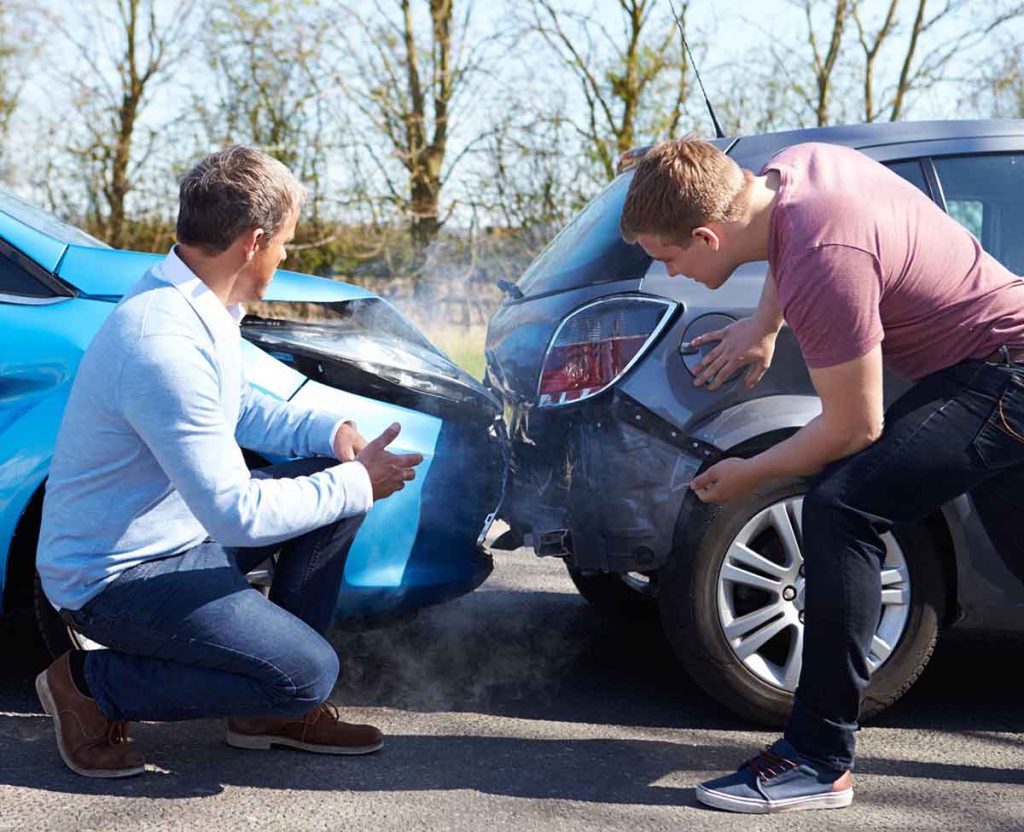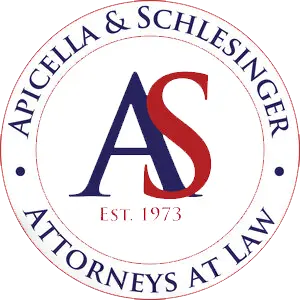Understanding how liability is determined in a car accident case is crucial for those seeking justice and compensation.
In the bustling streets of New York, car accidents can happen in the blink of an eye, leading to injuries, property damage, and legal complexities. Understanding how liability is determined in a car accident case is crucial for those seeking justice and compensation.
With more than 45 years of experience, Apicella & Schlesinger Attorneys at Law specializes in personal injury cases resulting from car accidents. Contact us today to schedule a free consultation.

How Liability is Determined
Liability in a car accident case in New York is determined based on negligence. Negligence occurs when one party fails to exercise reasonable care, resulting in harm to another party. To establish liability, certain elements must be proven:
- Duty of Care – The first step is to establish that the defendant (the party alleged to be at fault) owed a duty of care to the plaintiff (the injured party). In the context of a car accident, all drivers must operate their vehicles safely and follow traffic laws.
- Breach of Duty – The plaintiff must demonstrate that the defendant breached the duty of care. This could involve speeding, running a red light, or failing to yield.
- Causation – There must be a direct connection between the defendant’s breach of duty and the injuries sustained by the plaintiff. It must be established that the defendant’s actions were a substantial factor in causing the accident and subsequent injuries.
- Damages – The plaintiff must have suffered actual damages, such as medical expenses, property damage, lost wages, or pain and suffering.
- No-Fault Insurance System – New York operates under a no-fault insurance system, meaning that individuals injured in a car accident typically seek compensation from their insurance provider, regardless of who was at fault. However, there are exceptions to this rule, such as cases involving severe injuries or economic losses exceeding a certain threshold.
- New York follows a “pure comparative negligence” rule – This means that even if you are partially at fault for the accident, you can still recover damages. However, your compensation will be reduced by your percentage of fault. For example, if you are found to be 20% at fault for the accident and your damages total $100,000, you would receive $80,000.
In practical terms, liability is often determined through investigations, witness statements, police reports, and expert testimony. Insurance companies may also conduct their own investigations to assess liability. If a settlement cannot be reached, the case may proceed to court, where a judge or jury will ultimately determine liability based on the presented evidence. It’s essential to consult a qualified attorney specializing in personal injury law to navigate the legal complexities and protect your interests in a car accident case in New York.
Free Consultation with a Bronx Car Accident Lawyer
Contact Apicella & Schlesinger Attorneys at Law to request a free consultation.
Call (212) 568-4245